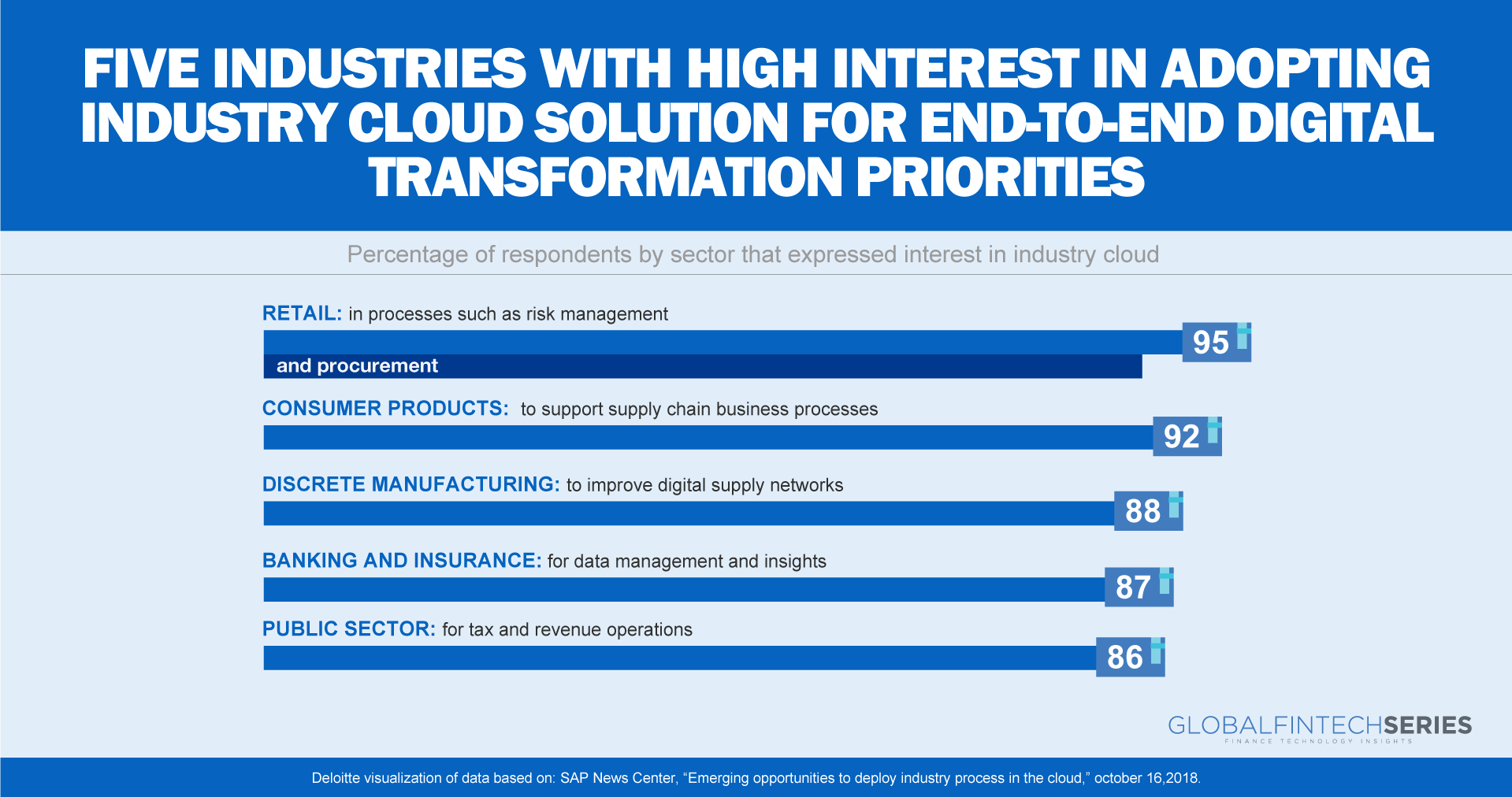Cloud Industry- An Introduction
To put it in layman’s language, the cloud Industry is a model of computing resources as a service. By moving to the cloud, the resources are no longer owned and maintained by the end user, but rather by a third-party supplier. Industry-specific cloud services are offered by industrial clouds, including those for retail, banking, insurance, healthcare, manufacturing, and other sectors. The market for corporate clouds is rapidly growing on a global scale. According to estimates, the market for industry clouds is approximately US$640 billion and might make up as much as 64% of the US$1 trillion cloud market. What is a cloud industry, and how does it vary from other industries?
First, online services for cloud computing are offered. Small businesses have on-demand access to web-based apps, data processing, storage, and other services. Examples of cloud computing services include infrastructure as a service, platform as a service, and software as a service. Second, they enable engineers and strategists to work together and advance the project with well-organized teams. Industry clouds have in certain instances sped up the advancement of the life sciences, healthcare, and governmental research and development for medicines and antibodies.
Read More: Understanding the Basics of Stock Market Trading- An Enigma?
Clouds May Expedite Change
Associations can use the absolute most recent advances from industry clouds, including man-made brainpower (computer-based intelligence) and AI models, the Web of Things, 5G, digital, blockchain, virtual reality, and others. It implies you enter the race with the most ideal vehicle and make alterations to prebuilt hardware with a specialist group, instead of building your vehicle and group without any preparation. Such arrangements are arising in each industry and are constantly developing to address new-era challenges and consolidate the most recent advanced abilities.
For instance, in the high-tech electronics space, companies use industry clouds to speed up change like product processing and development, arranging, assembling, and end-to-end offerings. With an industry cloud, innovative hardware companies can easily fabricate any data configuration controlled by new advances like AI and advanced twins(ML and DL). They could utilize these instruments to foresee, test, and characterize new elements that can further develop tech ideas. This permits the companies to embrace strong techniques and specialists steadily with industry clouds. Independently, they can utilize steady client input to fabricate separated capacities that can decrease risk and speed up improvement with a new approach. Below is an exhibit that represents the industries with high interest in adopting industry cloud solutions for end-to-end digital transformation.

The exhibit below represents the industry clouds that enable their future. It is an example taken to briefly give an overview of how can an industry cloud transform the entire functioning of any business from its operational activities to its supply chain.

With impressive client information, they may then engage internal teams to develop more limited client experience components. One large restaurant chain in the world gathered a variety of partners and had the choice to employ this strategy to handle attention on four key use cases: customer opinion detecting, raised client experience suggestions, an associated eatery, and vision assistance. They then had the choice to accelerate each of the five use cases using industry clouds. An industrial capability that integrated prebuilt artificial intelligence and man-made intelligence models was advanced for the client opinion detecting use case. The café was able to separate as a result of the arrangement being improved in light of customer experience data.

Implementing industry clouds ordinarily requires another working model, one wherein designing cases are adjusted to business products. Together, they can have the configuration of full-stack items and offer business targets. While embracing an industry cloud, interior assets ought to zero in on the 20% where you intend to separate, and afterward take on the industry cloud’s prebuilt administrations to speed up the rest.
Final Words
Using an industry cloud to boost your company’s competitiveness may seem paradoxical. How can you stand out if everyone has access to the same solutions? Let’s get back to competitive auto racing. You don’t have to upgrade the complete automobile yourself because every team has access to the identical car parts. Choosing the components best suited to their requirements, then tweaking and maintaining them, puts one team in a winning position. It has to do with how the driver is educated and employs technology to provide original ideas and private insights.
Recommended: Would Mobile Applications Drive the Next Level of Business Growth in the Insurance Industry?
